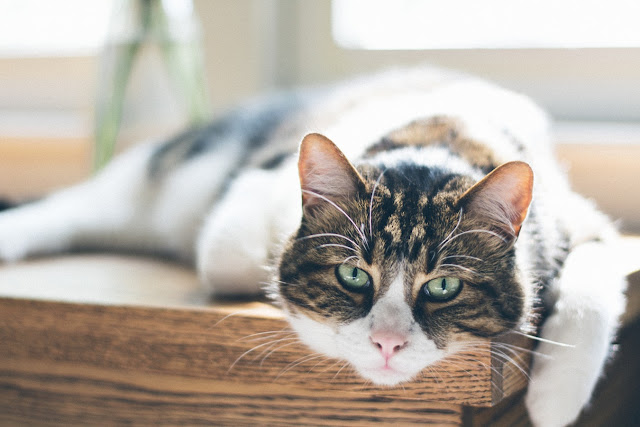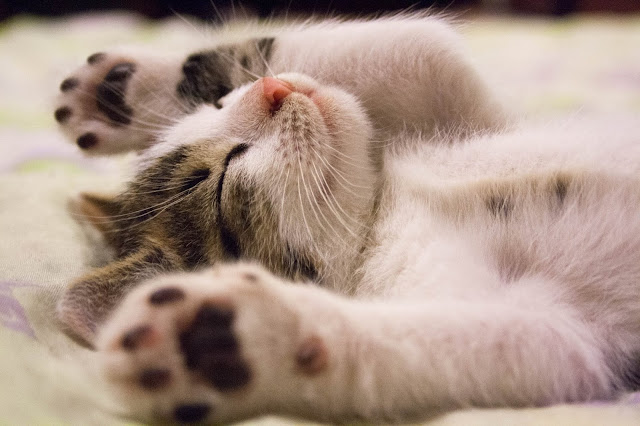It's
easy to assume that cats purr because they're happy, right? After all, when
your cat is happily curled up in your lap for some well-deserved scratches and
rubs, they're obviously one happy kitty.
However, cats tend to purr for more than just that one reason. If you want to
find out more than one reason why you cat is probably purring, keep on reading!
Firstly, we need to know how our cats purr! Research
has shown that cats’ muscles move their vocal cords and, as they breathe in and
out, air hits the vibrating muscles, which creates the purring sound. Furthermore,
cats that purr can’t roar, and cats that roar can’t purr. This is all because
of the small bone found inside the vocal cords, which in roaring cats, is
flexible unlike purring cats.
Now that we have established how they purr, let’s look at the 4 main reasons why they purr.
Means of Communication between Mother & Newborn
Purring in newborn kittens is vital for
survival. Kittens enter the world hearing the soft vibrations of their mum’s
purr; and since they are born deaf and blind purring is like a homing device
for them. The purrs of their mums guide them towards their mothers for warmth, food
and other necessities.
When they want Attention (Or Food)
Cats quickly learn that another benefit of them
purring will gain them the attention – or food – they are after. More often than
not, cat-parents love to lavish their fur-baby in attention or treats when they
hear them purring, therefore cats will purr when they are after something.
FACT: A recent study found that the purr that
cats make when they are hungry, or thinking about food, differs from their regular
purr.
They’re Happy
Imagine your cat, on their back, eyes half
closed, tail mostly still and purring. In that moment it is safe to assume they
are happy. Their purr is a big smile. Most people tend to believe that their
cat purrs when they are happy, but unless they are showing signs of being
content, their purring could be for many other reasons.
When they are Stressed, in Pain or Sick
Even though purring takes energy, many cats
purr when they get hurt or are in pain – but why? Research suggests that purring can actually
help cats heal faster. The low frequency of purrs causes vibrations throughout
their body that can:
- Heal bones and wounds
- Build muscle and repair tendons
- Ease breathing
- Lessen pain and swelling
If you’d like more vet approved pet health advice, sign up to our monthly newsletter here, or visit www.vetshopaustralia.com.au/Pet-Health.









0 comments